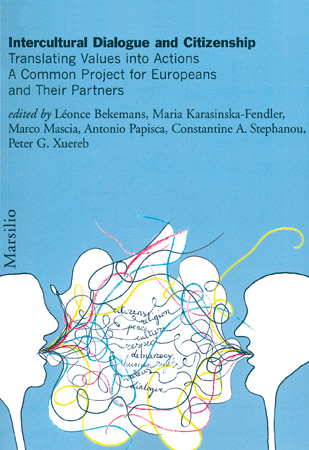Raccolte

How Intercultural Dialogue Can Improve European Democracy - Deliberative Democracy Approach
Maria Karasinska-Fendler (2007)
- Contenuto in
- Intercultural Dialogue and Citizenship
- Tipologia pubblicazione
- Articolo / Saggio
- Pagine
- 85-100
- Lingua
- EN
The European Union faces numerous challenges: of the largely debated «democratic deficit», resulting from the great distance between ordinary people and the decision-making institutions, resulting from the progressive transfer of the traditionally national competencies to the supra-national level, of the increasing inflows of immigrants, of the ageing of populations, of the global dangers linked to terrorism, organised crime and other negative phenomena resulting from the existing global inequalities. On the citizens’ side, one may observe the decreasing trend in civic activities potentially offered by democratic systems. Some experts call these problems symptoms of morbidity, linked to the erosion of the sense of belonging to the community: local, regional, national and European.
This paper argues, that intercultural dialogue, while happening within the deliberative democracy system, may significantly contribute to the improvement of democracy through: the greater legitimacy, through real empowerment of citizens in concordance with subsidiarity principles, through the inclusiveness and the more active participation of citizens in public life and increased sense of belonging to various epistemic communities.
In order to experience this contribution, first – the ability to dialogue should be developed, second the venues and grounds for such dialogue need to be available. The last but not least important problem is how to provide ways for people to perceive themselves as actors and to be real actors. Our public life – up to date – shows that real changes happen somewhere up – beyond most peoples’ reach nor influence. This reflects the disconnection between citizens and their elected representatives or other elites. To break dawn this negative perception the crucial impact should be given to opportunities of transfer of the outcomes of the public discourses to be heard and implemented by other bodies. Democratic conversation between citizens and government is a central idea of democracy. There needs to be a permanent and mutual interaction of the two-ways communication between those two groups and this is a particular role to be played by various governances to provide channels for such a bottomup and up to the bottom symmetric interaction. So there is an imperative of connecting it to governments, policy-making, and governance at differentlevels.

